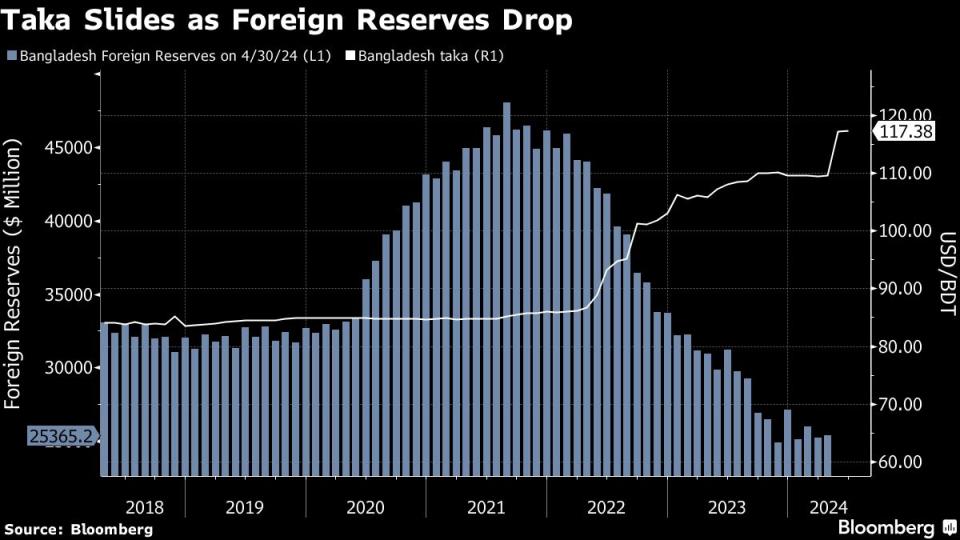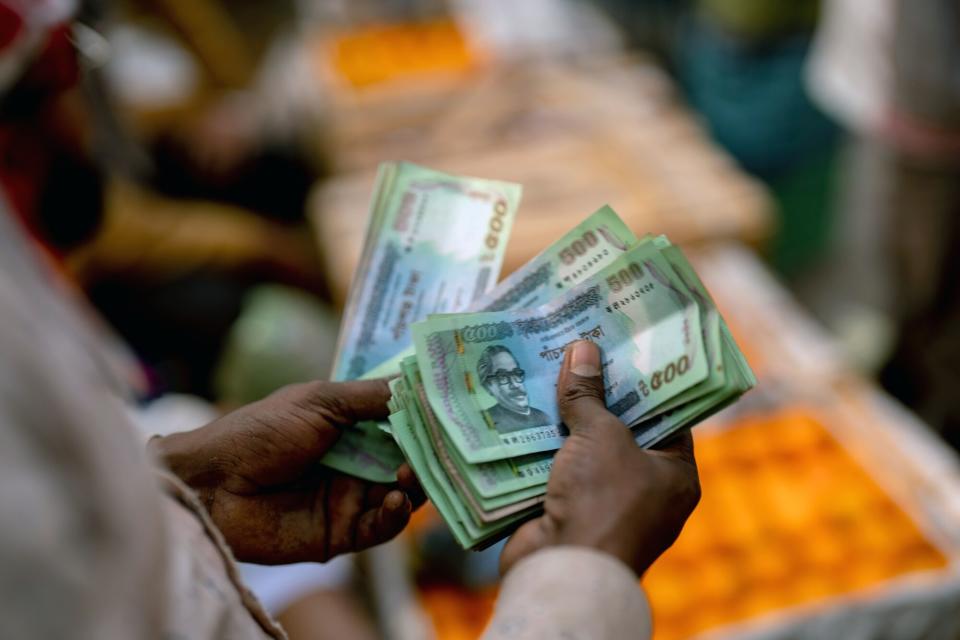Bangladesh Taka to Hit Fresh Lows on Crawling Peg, Moody’s Says
(Bloomberg) -- Bangladesh’s taka is likely to fall deeper into a record-low territory as the central bank loosens its grip on the currency, according to Moody’s Ratings.
Most Read from Bloomberg
Dozens of CVS Generic Drug Recalls Expose Link to Tainted Factories
Fed’s Higher-for-Longer Stance Hits Firms That Expected Rate Cut
It will probably weaken another 2% to about 120 per dollar by the end of the year, said Young Kim, an analyst at the rating firm in Singapore. The currency has hit a series of record lows in recent days.
The recently introduced crawling peg system will allow the taka to move closer in value to the rate it trades in the unofficial market, he said.
A more flexible foreign-exchange regime is part of a package of policies recommended by the International Monetary Fund, which handed the nation a $4.7 billion bailout program last year. The policy shift may help Bangladesh avoid a further deterioration in its FX reserves, which Fitch Ratings cited as a key reason for downgrading the nation’s credit score deeper into junk in May.
“Most of the pressure for Bangladesh is external and was around the fixed-exchange rate that created distortion between the market and the official exchange rate,” said Kim, “That’s why they devalued taka quite significantly. Reducing that gap helps reduce some of the imbalances.”
The central bank introduced a crawling peg exchange rate system and set the mid rate at 117 taka per dollar in May, prompting a nearly 8% slide in the currency this quarter. It weakened 0.3% to 117.7 against the greenback on Tuesday to close at a new low.
Bangladesh is also slashing spending and raising taxes as it seeks to narrow the budget deficit and shore up revenues amid a steady erosion of foreign reserves. The central bank has also made interest rates market-based to curb inflationary pressure as the nation grappled with the fastest pace of price rises in seven months in May.
Most Read from Bloomberg Businessweek
China’s Economic Powerhouse Is Feeling the Brunt of Its Slowdown
As Banking Moves Online, Branch Design Takes Cues From Starbucks
Food Companies Hope You Won’t Notice Shortages Are Raising Prices
©2024 Bloomberg L.P.

 Yahoo Finance
Yahoo Finance 

